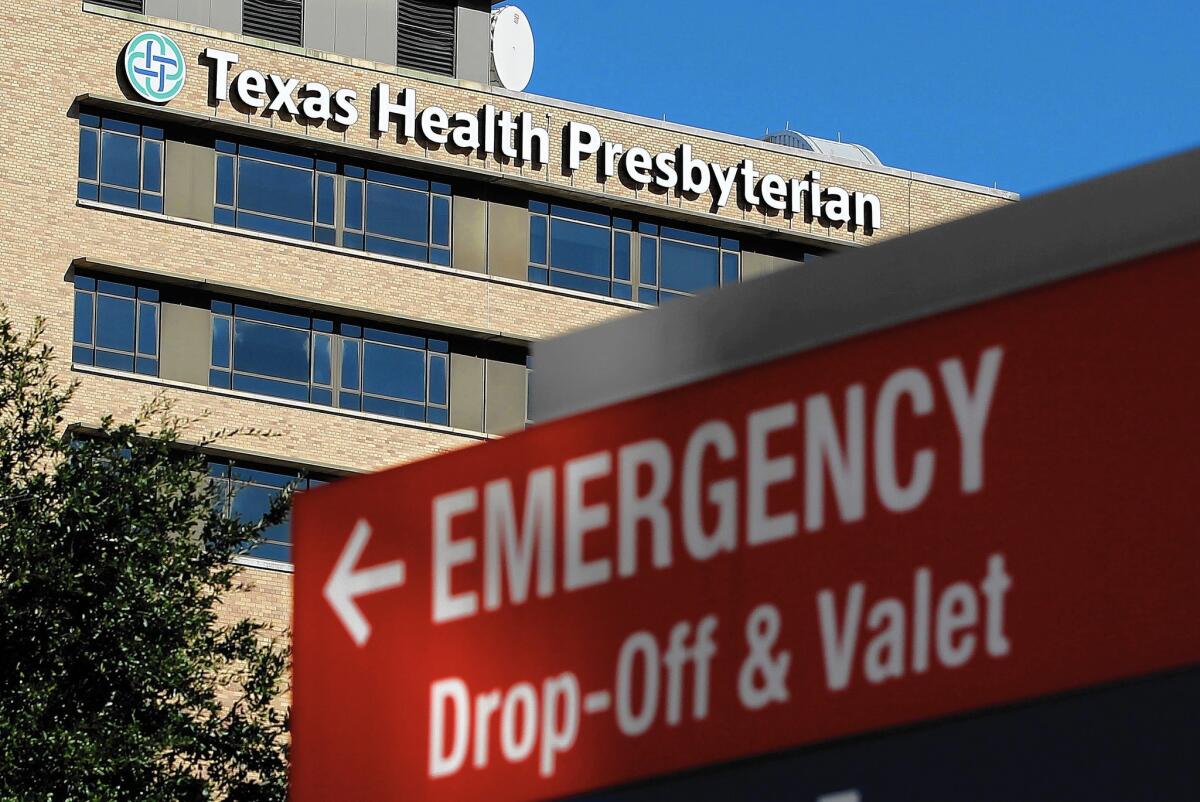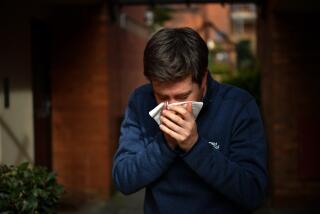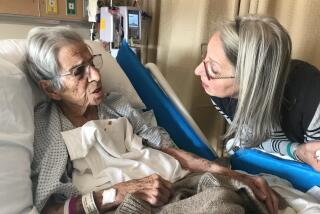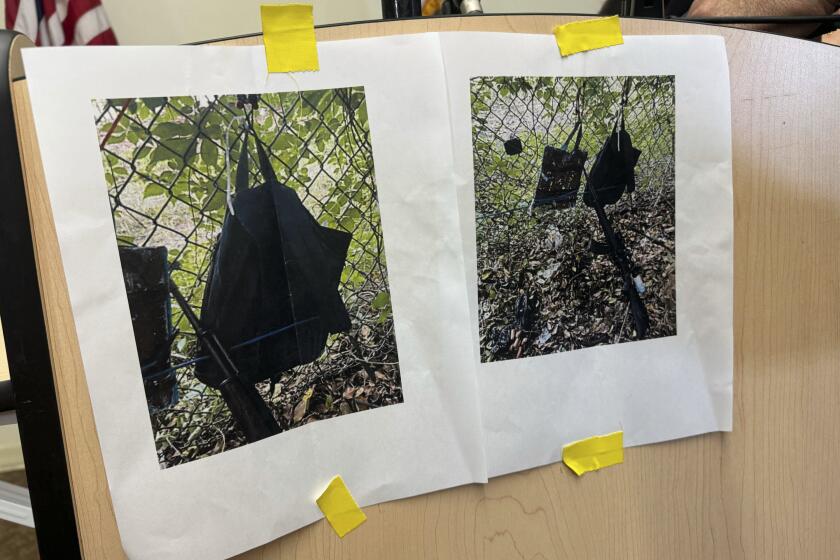Readers React: Listen to nurses who blow the whistle on shoddy Ebola care

To the editor: A second healthcare worker has tested positive for Ebola. We know that protective precautions were not adequate at Dallas’ Texas Health Presbyterian Hospital and nurses were afraid to voice their concerns. (“Nurses at Dallas hospital describe poor safety measures with Ebola victim,” Oct. 14)
Nurses often know the ethically correct course of action but cannot carry it out because of administrative fear of retaliation or other constraints. This is called moral distress, and nurses want to leave their jobs because of it.
We will most likely see more nurses become infected with Ebola because of the Dallas hospital’s working conditions. In today’s world, this is no longer acceptable. Nurses are patients’ and families’ best advocate at the bedside, but they also have a responsibility to advocate for themselves.
Providing good and quality care to Ebola patients requires not only proactive nurses to request what they need but also supportive system leadership so nurses don’t feel as though they have to go “underground” to voice their concerns.
Connie M. Ulrich, Philadelphia
The writer is an associate professor of bioethics and nursing at the University of Pennsylvania School of Nursing and Department of Medical Ethics and Health Policy.
..
To the editor: The U.S. medical establishment’s high opinion of its capabilities to treat and contain the Ebola virus is a dangerous instance of unbridled hubris and folly.
The theorem, “Whatever can go wrong inevitably will go wrong and at the worst possible moment,” should have cautioned medical planners to conclude that it would be best if those carrying Ebola never reached our shores in the first place.
Human error has to be expected in these situations, which argues for not allowing anyone who is a possible carrier to land in the U.S. until Ebola is again eradicated in humans in Africa.
Mark Ryavec, Venice
..
To the editor: There has been too much emphasis on what Dallas nurse and Ebola patient Nina Pham might have done incorrectly, thereby exposing herself to the virus. It is possible that a fellow hospital worker made a mistake, inadvertently putting Pham at risk.
While direct exposure to an Ebola patient is the riskiest way to contract the virus, the burning and decontaminating of anything an ill person comes into contact with makes clear that secondary contact is also extremely risky.
Now we learn that a second Dallas nurse with Ebola was on a plane after her colleague was diagnosed. Why was she out in the community when it was known that a fellow nurse had the disease?
Perhaps an equivalent to combat pay should be provided to those caring for Ebola patients, and they could live in hospital-provided housing while taking care of stricken patients until we are sure they are free of the virus.
Mara Sperling, Los Angeles
..
To the editor: This country has lost all perspective on Ebola. While at least two health workers were infected in the Dallas hospital, we seem to ignore the fact that every year roughly 100,000 people die from infections that were transmitted in hospitals.
Diseases are less likely to be transmitted in healthcare facilities when basic hygiene (such as washing one’s hands) is practiced. Still, basic hygienic behavior is often not practiced by many patients and physicians. Washing hands will not prevent the spread of Ebola, but it will go a long way in preventing 100,000 deaths every year.
We have to remember that the only Ebola fatality in the United States happened to an unfortunate person who contracted the virus in Liberia and then traveled here. Let us all gain some perspective on this terrible disease.
Adam Mekler, Pasadena
Follow the Opinion section on Twitter @latimesopinion
More to Read
A cure for the common opinion
Get thought-provoking perspectives with our weekly newsletter.
You may occasionally receive promotional content from the Los Angeles Times.










